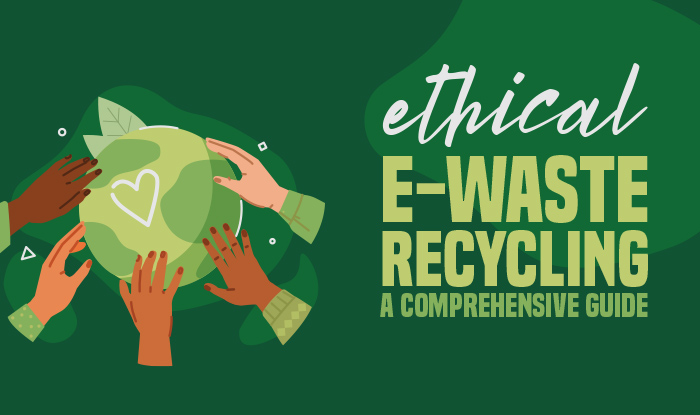[INFOGRAPHIC] The Skinny on Ethical E-Waste Recycling

Before we talk about ethical e-waste recycling, let’s take a look at how far we’ve come.
Climate activists have finally succeeded in making nationwide e-waste legislation a reality. According to the EPA, twenty-five U.S. states (plus the District of Columbia) now have mandatory e-waste recycling laws guiding corporations and communities on how to manage their discarded electronics.
At first glance, the figure of 25 states looks like a heartening number. Almost half of the USA is now seriously managing its e-waste issue.
But juxtapose it with the fact that in 2015, twenty-two U.S. states already had such legislation in place.
The number loses all its steam.
You are faced with the harsh fact that it has now become a race against time. If we continue at this pace, scientists predict that more than a third of the Earth’s animal and plant species will go extinct by 2050. By the end of the century, almost 70% of it will be lost.
You further put all this information in the context of current e-waste recycling practices and you realize that a core component — ethical sustainability — is missing.
What is ethical sustainability in relation to e-waste recycling?
Ethical sustainability is a way of life where we live conscientiously, ever mindful of our connection with people and the planet and how our actions can impact both.
In terms of e-waste recycling, ethical e-waste recycling demands that we dispose of our electronics in a way that prioritizes environmental sustainability, worker safety, and responsible handling of hazardous materials in e-waste.
Why is this critical?
To effectively fix the problem of e-waste, ethical recycling needs to be embedded into every e-waste law and guideline. Ethical recycling ensures that we aren’t adding to the problem in the process of trying to solve it. It allows us to go to the root of it, and fix the issue at the origin.
By demanding ethical e-waste recycling, you address three major issues that worsen this problem:
- You work toward creative scientific solutions that reduce the environmental impact of e-waste and its recycling.
- You champion for worker safety who handle the e-waste in all of its stages of recycling
- You hold people and corporations accountable who are responsible for creating the e-waste crisis.
Ethical e-waste recycling brings us closer to achieving a circular economy where all the effort and resources are committed towards proactive planetary action to heal the planet and its people instead of panicked, reactive approaches that are never going to fully work.
In this infographic, we invite you to take a look at what’s ethical recycling, why it is critically important to the e-waste issue we are faced with, and what are the important considerations when we talk about the ethics of e-waste.
Embed in your site:
About The Author Kelly Sampson
Kelly Sampson is a writer, blogger, and environmental enthusiast. She has strong opinions about climate change, the dogs vs. cats debate, and Oxford commas. She has lent Hummingbird International her engaging and spirited voice and turned our blog into a great place to find valuable information about e-waste, e-waste recycling, and the ITAD industry. Explore our blog to read more of her work.

